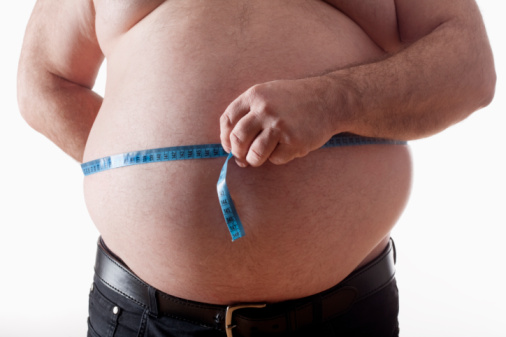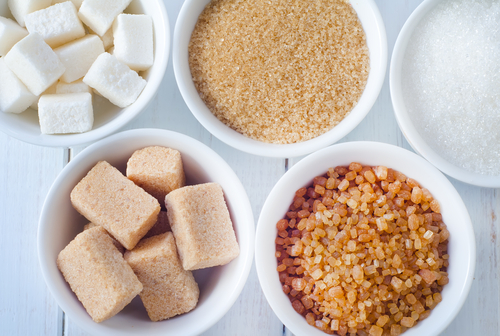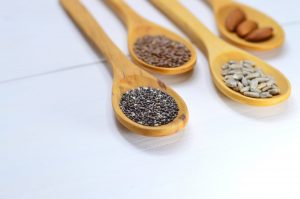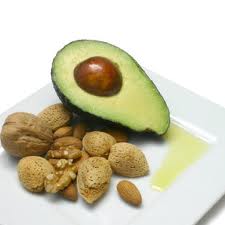Is Inflammation Making You Fat?
This Could Be the Real Reason You Can’t Lose Weight

Do your pants immediately feel tighter after dinner?
Do you find yourself noticing extra fat around your midsection?
If this sounds familiar, you know how frustrating bloating and stubborn belly fat can be. While self-pity is unproductive, there are things you can do each day to improve these issues by addressing the real cause.
The Real Reason You Feel Fat

Inflammation could be one of the reasons you can’t shed those pounds or get rid of inconvenient bloating. This is great news if you haven’t seen the results you’ve wanted from diet and exercise alone.
What is Inflammation?
Inflammation is a component of the body’s defense mechanism. For short periods of time, it’s a good thing.
For example, your body will induce a temporary fever to help ward off foreign pathogens when you’re sick.
This causes an intentional inflammatory response aimed at making you better.
However, long-term inflammation is different. Long-term inflammation is caused by food intolerances, stress, and poor digestion. When left unchecked, this can cause fat-storing hormones to be released excessively.
How to Lose the Fat Caused by Inflammation
Here are some of the top inflammation-fighting practices you can get started on right now:
1. Remove Inflammatory Foods
These inflammatory foods tax your body and immune system and can lead to increased body fat. Try to remove the following foods and ingredients from your diet and household:
✦ Gluten
✦ Dairy
✦ Corn
✦ Eggs
✦ Soy
✦ Nuts
✦ Nightshades

tomatoes, bell peppers, potatoes, eggplants
✦ Citrus
✦ Yeast

baker’s yeast, brewer’s yeast, and fermented products like alcohol
2. Remove Added Sugar 
Sugar has an immediate effect on the body and causes widespread inflammation.
A little natural sugar found in fruits is okay, but added sugar or sweeteners should be avoided.
Added sugar can even be found in food that doesn’t taste sweet, such as soup, bread and salad dressing. Get in the habit of checking nutrition labels and steer clear of foods with added sugar.
3. Reduce Your Salt Intake
Sodium blocks normal hormone signals that make you feel full.
This is why salty foods tend to make you overeat even when you’re not hungry.
Check the sodium content of foods and sauces in your home and keep track of how much you consume each day. When possible, prepare your foods at home and use spices instead of salt.
4. Take Curcumin (Active component inside Turmeric root)

Curcumin is the powerful anti-inflammatory ingredient inside turmeric that has incredible healing properties known to fight inflammation and oxidative stress.
Lowering oxidative stress can help regulate the release of fat-storing hormones, which makes it easier to lose weight.
This is a must-have in your daily routine if you want to combat stubborn fat caused by inflammation.
5. Try Icelandic Sea Kelp
Icelandic Sea Kelp contains fucoidan, an anti-inflammatory complex carbohydrate that fights oxidative stress.
The fiber in sea kelp also helps you feel full, which can help promote weight loss.
6. Add a Little Ginger To Your Drinks & Meals
Ginger is an amazing anti-inflammatory agent that helps support healthy digestion. It’s great for upset stomachs and can easily be added to water if your tummy needs a pick-me-up!
7. Astragalus
Astragalus is an incredible plant that supports the immune system, also known as an adaptogen.
Adaptogens are activated by stress and help lower cortisol levels in the body. Maintaining low, healthy cortisol levels is essential for weight loss.
8. Eat More Pineapple
Pineapples contain an enzyme called bromelain, which helps break down protein and reduce bloating.
Pineapples are one of the only fruits that leave alkaline residuals in the gastrointestinal tract to help decrease inflammation.
With a little patience and these tips, you can fight bloating and stubborn belly fat caused by inflammation. It's never too early to start, and this might be the push you needed to finally fit into those skinny jeans!


















